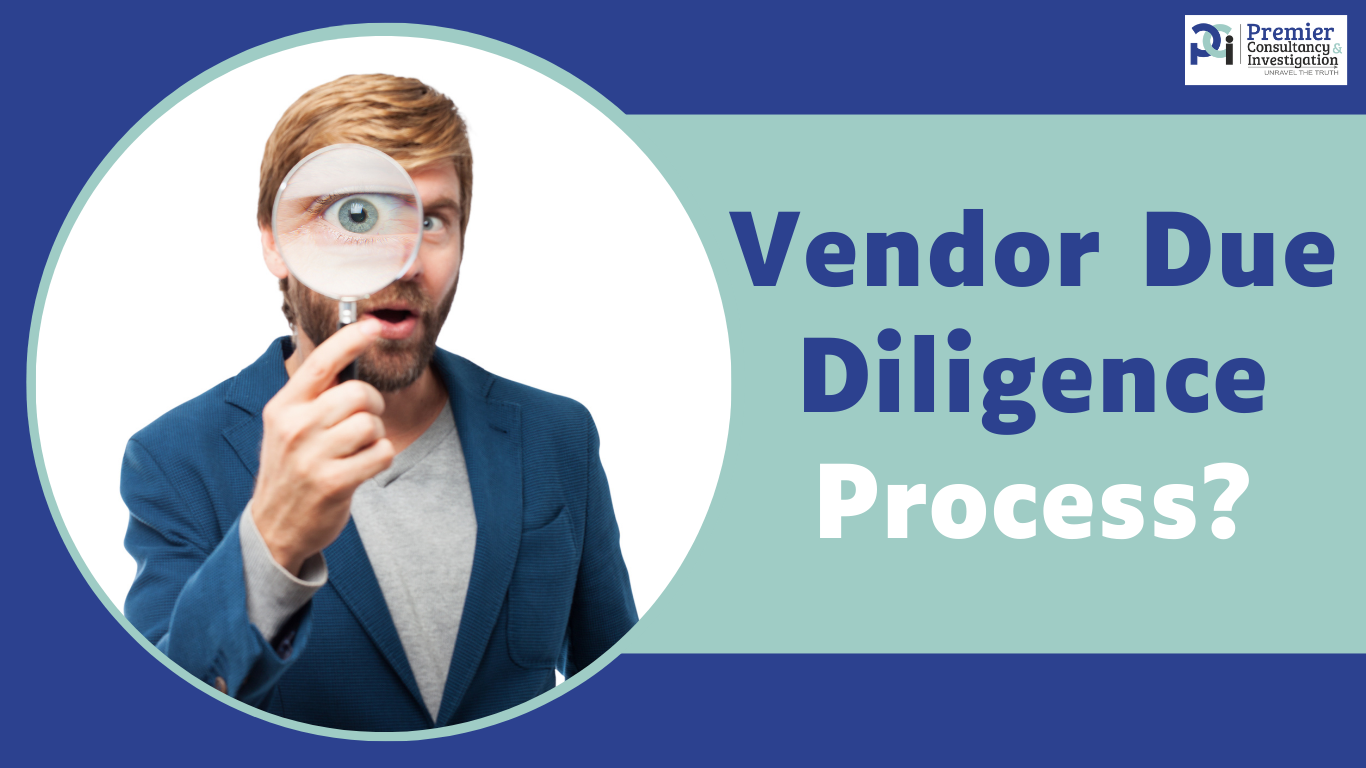Diligence involves examining a vendor’s allegiance and defenses. The horrifying reality is that failure to conduct vendor due diligence process can result in enormous losses. Take into account the fact that businesses might lose up to 5% of their annual income by skipping out on due diligence. Millions have simply disappeared.
What if your rivals are taking advantage of holes in your supply chain, costing you important clients and market share? You’re left calculating the price of missed opportunities and losing out on money.
The fear doesn’t stop there, either. A further 3% of your earnings can be devoured by regulatory fines for compliance violations, draining your finances. That is a somber fact that nobody wants to acknowledge.
What is the Vendor Due Diligence Process?
The VDD or vendor due diligence process is the equivalent of conducting research before signing a contract with a vendor. You do a thorough examination to prevent future regrets. Consider it as genuinely getting to know the seller before forming a partnership. To ensure their credibility, you look into their past, reputation, and performance history. In this approach, you can anticipate any potential issues or hazards and decide whether it would be wise to cooperate with them. It’s similar to reading reviews before making an internet purchase to avoid being let down. Vendor due diligence is all about picking business partners wisely and cautiously to protect your company from any pitfalls.
How is the Vendor Due Diligence Process Conducted?
Due diligence on potential business partners is similar to a safety check. It occurs right before you partner with a new business. It’s a means to ensure that they are secure enough to work with.
Before any formal collaboration, a detailed examination of the new partner is conducted initially. Comparable to inspecting a car before purchasing it. Everyone participating in the transaction is aware of what is going on, and they collaborate to identify any potential issues. If problems arise, they work out a solution.
There are regulations in place to keep things secure after the cooperation has begun. Imagine them like automotive seat belts. The Foreign Corrupt Practices Act (FCPA) in the United States, GDPR in Europe, and anti-money laundering laws all over the world are important international rules. These rules mandate that companies evaluate the moral, ethical, and financial compliance of their vendors. Due diligence protects both parties by preventing fraud, corruption, and data breaches. For international trade and company integrity, as well as to promote trust in the global market, compliance with these rules is essential.
They continue to monitor events as time passes. It’s similar to periodically examining the engine of your automobile to make sure it’s functioning properly. This aids in early problem detection.
Key Benefits of Conducting Vendor Due Diligence Process
A critical step for organisations to mitigate against hazards is the vendor due diligence process. These are the main advantages:
- The vendor due diligence process assists in identifying potential hazards connected to your vendors, enabling you to take precautions.
- Quality control lowers the likelihood of inferior performance by ensuring that the goods or services supplied by vendors match your standards.
- By analysing vendor financials, you can find areas of cost reduction and bargain for better terms.
- Assuring vendors follow laws and regulations lowers your company’s exposure to lawsuits.
- By ensuring that your vendors share your commitment to ethical practices, it protects the reputation of your brand.
- Vendor evaluations assist in developing backup plans that guarantee your operations keep running even if a vendor experiences difficulties.
Most Effective Vendor Due Diligence Practices
Take a look at how the Vendor Due Diligence process can be effective for your company:
Gathering business-related data
Obtaining basic information about your vendor’s company, such as their name, address, and ownership structure, should be your first step. It’s important to know who you’re dealing with.
Examine the financial data
Analyse their balance sheets and income statements from their financial records. This enables you to determine their financial stability and their capacity to keep their promises.
Be aware of operational risks
Determine any potential operational difficulties, such as production problems or supply chain disruptions. You can prepare for emergencies by being aware of these hazards.
Identify Legal Risk
Examine all licenses, contracts, and pending legal matters. Ensure adherence to the rules and laws that apply to your sector.
Analyse the risk to cybersecurity
Examine the vendor’s security precautions. Make sure they have strong security policies in place because protecting your data is of the utmost importance.
Prioritize risk profiles
Prioritise risk profiles by placing them in order of likelihood and seriousness. Concentrate your efforts on hazards with a high impact potential for your organisation.
Keep an eye on vendor risk constantly
Being diligent requires ongoing effort. Review your vendor’s risk profile frequently to be aware of any changes.
Automate the survey-taking procedure
Automate data collecting and questionnaires to speed up the process. This reduces time spent on assessments and guarantees consistency.
Steps That Organizations Can Take to Conduct VDD
Vendor due diligence (VDD) is essential for risk management and ensuring that your business selects third-party vendors after doing thorough research. The steps to successfully conducting VDD process are as follows:
Obtain Important Details About Your Vendor
Gather pertinent information about your possible vendor to start, including their location, ownership structure, and any prior financial difficulties. This stage aids in determining the vendor’s overall level of risk, taking into account their financial standing and compliance record.
Check Out Your Vendor
Do a comprehensive background check on your seller, looking for anything unfavorable (bad news, political ties, sanctions, etc.). Check for conflicts of interest as well, as these can affect your vendor’s standing and risk profile.
Perform a risk analysis
Examine financial reliability, monetary stability, and IT security to learn more about risk assessment. Create a security questionnaire specifically for your provider, taking into account the services they provide. Examine elements such as risk management procedures, financial vulnerability, and corruption ratings for the area in question.
Remediation and Continuous Vendor Risk Management
Verify the conclusions and consult subject matter experts for in-depth analyses after gathering information and evaluating risks. If necessary, create strategies for correction. Throughout the vendor relationship, continuously assess the vendor’s risk position.
Challenges of Conducting Vendor Due Diligence Process
Vendor risk management relies heavily on vendor due diligence to assist businesses reduce risk. Organisations frequently encounter the following difficulties in this process, though:
Resource and time-intensive
Due diligence on vendors requires a significant amount of time and resources, which has an impact on daily operations.
Lack of knowledge
Many businesses lack the knowledge necessary to thoroughly evaluate providers, thereby leaving gaps in risk assessment.
Vendor opposition
Vendors can be reluctant to divulge private information, which would slow down the process of performing due diligence.
Landscape Change
Regulations and the corporate environment are always changing, making it difficult to keep current and modify due diligence practices accordingly.
Monetary risk
It might be challenging to assess a vendor’s financial soundness, yet failing to do so could result in exposure.
Types of Risks to Mitigate
These risks must be considered while vendor selection to establish a solid, dependable, and trustworthy partnership that is consistent with the company’s beliefs and aims and, ultimately, protects against potential setbacks and reputational damage.
- Financial risk examines a vendor’s financial stability and determines whether they can complete their contractual obligations.
- Operational risk refers to potential changes to the vendor’s processes that could have an impact on the delivery of services.
- Reputational risk assesses the vendor’s reputation and integrity to identify how the vendor’s actions might harm the client’s reputation.
How Vendor Due Diligence Mitigates Third-Party Risk in 4 Steps?
Vendor due diligence is essential for reducing the risk posed by outside vendors. Here are four crucial actions you should take to safeguard your company:
Obtain important details about your vendor
- Gather thorough information about your third-party vendor.
- Recognise their operational flexibility and financial soundness.
- Determine any potential warning signs that might endanger your business.
Check out your vendor
- Consider your vendor’s history and reputation carefully.
- Make sure they abide by legal regulations.
- Analyse their security precautions to keep your data safe.
Conduct a risk assessment
- Examine their financial statements to determine the financial risk.
- Analyse their processes to determine operational risk.
- Examine reputational risk by looking for previous conflicts or difficulties.
Remedial action and ongoing vendor risk administration
- Utilise vendor contracts to address any identified concerns.
- To stay current, use continual vendor monitoring.
- Be flexible to the shifting environment and shifting vendor threats.
Conclusion
Lack of due diligence can result in several business risks. Follow a systematic procedure for performing due diligence, which includes careful vendor risk assessment and vendor selection. Due diligence in vendor management ensures third-party risk management is efficient, protecting your company from potential harm. Keep in mind that selecting vendors carefully is the first step in safeguarding your company from threats.
FAQs
How do you mitigate vendor risks?
Before signing contracts, reduce vendor risks by evaluating their financial standing, security measures, and prior performance.
What are the risks of not performing vendor due diligence?
Financial loss, data breaches, and reputational harm are risks of not conducting vendor due diligence.
How do you perform due diligence on vendors?
Verify the qualifications of your vendors, look over their contracts, and run background checks.
What is due diligence in vendor management?
Assessing and confirming a vendor’s credentials, compliance, and general dependability are all part of the vendor management due diligence process.





